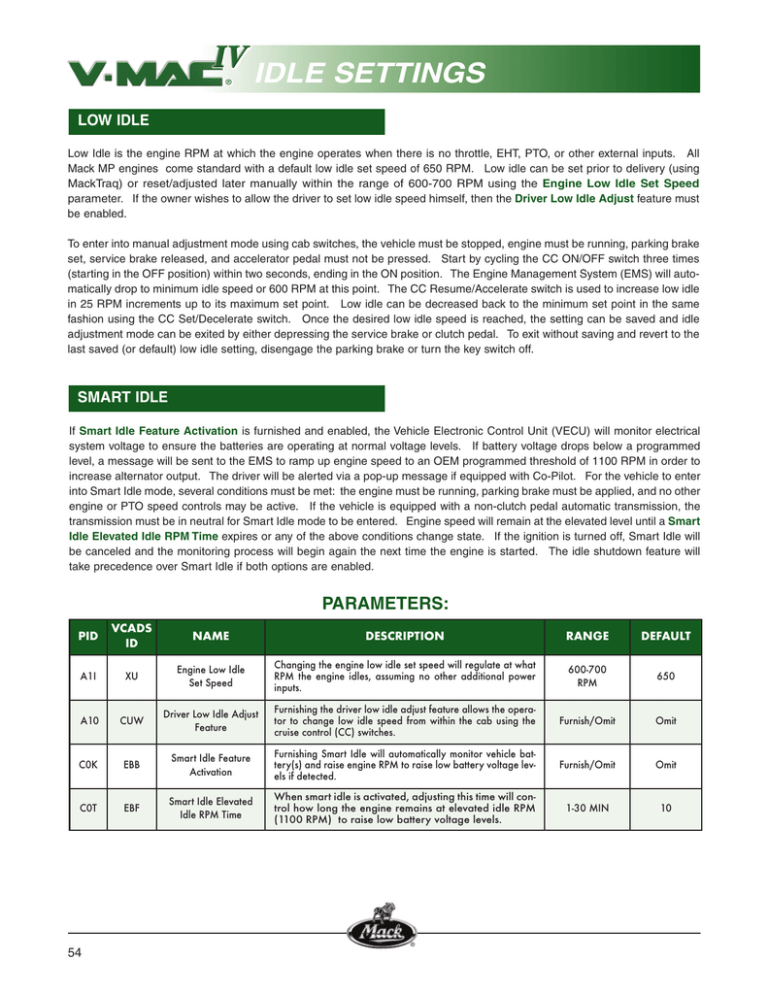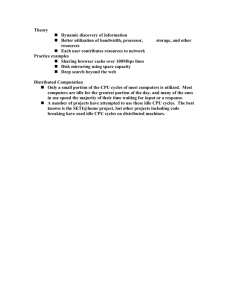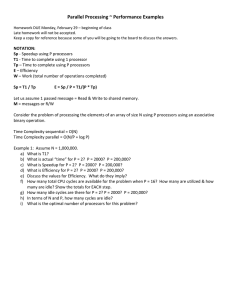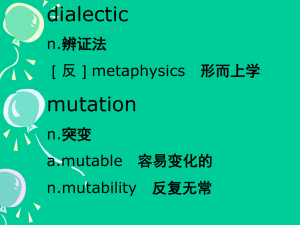idle settings
advertisement

IDLE SETTINGS LOW IDLE Low Idle is the engine RPM at which the engine operates when there is no throttle, EHT, PTO, or other external inputs. All Mack MP engines come standard with a default low idle set speed of 650 RPM. Low idle can be set prior to delivery (using MackTraq) or reset/adjusted later manually within the range of 600-700 RPM using the Engine Low Idle Set Speed parameter. If the owner wishes to allow the driver to set low idle speed himself, then the Driver Low Idle Adjust feature must be enabled. To enter into manual adjustment mode using cab switches, the vehicle must be stopped, engine must be running, parking brake set, service brake released, and accelerator pedal must not be pressed. Start by cycling the CC ON/OFF switch three times (starting in the OFF position) within two seconds, ending in the ON position. The Engine Management System (EMS) will automatically drop to minimum idle speed or 600 RPM at this point. The CC Resume/Accelerate switch is used to increase low idle in 25 RPM increments up to its maximum set point. Low idle can be decreased back to the minimum set point in the same fashion using the CC Set/Decelerate switch. Once the desired low idle speed is reached, the setting can be saved and idle adjustment mode can be exited by either depressing the service brake or clutch pedal. To exit without saving and revert to the last saved (or default) low idle setting, disengage the parking brake or turn the key switch off. SMART IDLE If Smart Idle Feature Activation is furnished and enabled, the Vehicle Electronic Control Unit (VECU) will monitor electrical system voltage to ensure the batteries are operating at normal voltage levels. If battery voltage drops below a programmed level, a message will be sent to the EMS to ramp up engine speed to an OEM programmed threshold of 1100 RPM in order to increase alternator output. The driver will be alerted via a pop-up message if equipped with Co-Pilot. For the vehicle to enter into Smart Idle mode, several conditions must be met: the engine must be running, parking brake must be applied, and no other engine or PTO speed controls may be active. If the vehicle is equipped with a non-clutch pedal automatic transmission, the transmission must be in neutral for Smart Idle mode to be entered. Engine speed will remain at the elevated level until a Smart Idle Elevated Idle RPM Time expires or any of the above conditions change state. If the ignition is turned off, Smart Idle will be canceled and the monitoring process will begin again the next time the engine is started. The idle shutdown feature will take precedence over Smart Idle if both options are enabled. PARAMETERS: PID VCADS ID NAME DESCRIPTION RANGE DEFAULT A1I XU Engine Low Idle Set Speed Changing the engine low idle set speed will regulate at what RPM the engine idles, assuming no other additional power inputs. 600-700 RPM 650 A10 CUW Driver Low Idle Adjust Feature Furnishing the driver low idle adjust feature allows the operator to change low idle speed from within the cab using the cruise control (CC) switches. Furnish/Omit Omit C0K EBB Smart Idle Feature Activation Furnishing Smart Idle will automatically monitor vehicle battery(s) and raise engine RPM to raise low battery voltage levels if detected. Furnish/Omit Omit C0T EBF Smart Idle Elevated Idle RPM Time When smart idle is activated, adjusting this time will control how long the engine remains at elevated idle RPM (1100 RPM) to raise low battery voltage levels. 1-30 MIN 10 ® 54 IDLE SETTINGS BENEFITS OF IDLE SETTINGS Normally, a low idle speed of 650 RPM works well for most applications. In some cases customers like to adjust it primarily to achieve a smoother idle, conserve fuel, or to provide enough heat to keep the cab or sleeper warm when idling in colder climates. Allowing the driver to adjust idle from within the cab is a convenient feature that few competitors offer. Smart Idle is primarily used for sleeper operation when the driver is using more power than the alternator produces when idling. After an extended period of time this can result in low battery voltage and potential restarting issues. Most alternators will significantly increase current and power output when running even slightly above low idle speed. Smart Idle automatically keeps this from occurring. The Smart Idle Elevated Idle Time feature allows the operator to tailor this idle time to meet his/her individual needs, while preventing extended higher RPM idling in the event of an alternator malfunction. WANT TO KNOW MORE? As with V-MAC IV programable parameters, ability to change Idle Settings parameters after purchase is also available using VCADS PC Service Support Software. Consult your dealer's certified V-MAC technician for additional details. ® 55



